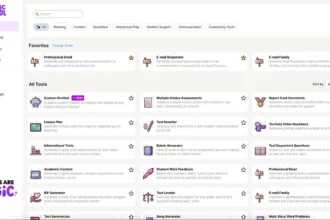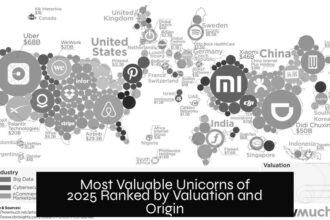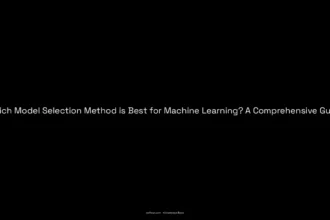Can a machine truly grasp the intricacies of our financial lives? As artificial intelligence advances faster than a cheetah chasing a gazelle, many wonder if it will eventually swipe the calculators from the hands of Chartered Accountants. The truth lies not in the idea of replacement but in a partnership; AI is set to revolutionize the accounting landscape by easing the burden of mundane tasks, while the human touch remains irreplaceable in strategic decisions and personal rapport. As we unpack this topic, let’s explore how Chartered Accountants can not only survive but thrive in the age of AI.
Table of Contents
ToggleWill AI Completely Replace Jobs of Chartered Accountants?
No, AI is unlikely to completely replace Chartered Accountants. Instead, this technology will support their roles by automating specific tasks, such as data entry and analysis. Chartered Accountants will remain essential for strategic decision-making, personal client interaction, and providing insights that require professional experience and human judgment.
As we delve deeper into this topic, it’s crucial to acknowledge that the advancements in AI are primarily aimed at enhancing productivity and efficiency within the accounting profession. While AI can undoubtedly handle repetitive tasks, it lacks the human touch necessary for critical functions such as client relationship management, nuanced financial advice, and ethical considerations in accounting practices.
For instance, tasks like bookkeeping or data entry can be efficiently managed by AI systems, thereby allowing Chartered Accountants to dedicate more time to complex issues that demand their analytical skills and judgment. This shift enables CAs to focus on value-add activities like financial consulting, strategic advising, and risk management, which are integral to helping businesses navigate increasingly complex financial landscapes.
To fully grasp the impact of AI on Chartered Accountants, it is also essential to consider the qualities that set human professionals apart from machines. These include:
- Emotional Intelligence: CAs excel in understanding client needs and emotions, fostering trust and loyalty through personal interaction.
- Professional Judgment: The ability to interpret complex financial scenarios and make informed decisions is inherently human. CAs draw on a wealth of experience and intuition that AI simply cannot replicate.
- Customization: While AI can generate reports and analyze data, it lacks the capability to tailor recommendations to a client’s unique situation. CAs bring a personalized approach that ensures their guidance aligns with clients’ specific goals.
Furthermore, the collaboration between AI and Chartered Accountants presents an opportunity for innovation within the industry. By leveraging AI tools, CAs can enhance their efficiency and accuracy. For example, AI’s capability to analyze vast datasets can uncover insights that inform better decision-making, ultimately benefiting clients. This partnership is not about replacement, but rather about using AI as a tool that complements and augments the expertise of CAs.
In conclusion, while the fear of job replacement looms as we embrace AI technologies, it’s vital to recognize that Chartered Accountants are evolving alongside these advancements. Their roles will not diminish but will transform to encompass higher-level strategic functions that AI cannot replicate. Therefore, those in the profession should view AI with optimism, focusing on continuous learning and adaptation to thrive in a rapidly changing environment.
More on this topic > TOP : 41 Jobs that AI Cannot replace (Safe from AI)
What Skills Will CAs Need to Acquire in the Age of AI?
In the age of AI, Chartered Accountants (CAs) must adapt their skill sets to remain relevant and effective in their roles. This means they need to become proficient in interpreting AI-generated insights and utilizing AI tools to enhance their workflow.
A significant aspect for CAs will be to hone their ability to analyze and interpret data provided by AI systems. This involves understanding how these tools operate, the types of insights they can generate, and how to apply these insights to real-world financial scenarios. Critical thinking skills will be essential, as CAs will still need to evaluate the relevance and accuracy of AI-generated data, ensuring that their strategies are sound and applicable to their clients’ unique situations.
Moreover, CAs will need to prioritize developing their interpersonal skills. Building and maintaining strong client relationships is something that AI cannot replicate. Personalized service, which includes understanding individual client needs and responding to their concerns with empathy and expertise, remains a critical component of a CA’s role that adds immense value in business dealings.
Additionally, continuous learning is vital. CAs must stay informed about the latest advancements in AI technology and how these developments can be leveraged to improve their services. By embracing a growth mindset, they can better navigate the changing landscape of accounting and finance.
Ultimately, while AI will enhance efficiencies, the distinct human attributes of CAs—such as emotional intelligence, professional judgment, and the ability to deliver strategic insights—will safeguard their relevance and importance in the financial landscape. These unique qualities will ensure that CAs provide indispensable advisory services that technology cannot replicate, solidifying their roles as trusted financial partners.
Updates – California AI Bill Explained: Understanding Its Impact on Rights, Technology, and Society
Can AI Understand the Complexities of Individual Financial Situations?
While AI excels at analyzing vast amounts of data efficiently, it falls short in comprehending the intricate nuances of human behavior and the complexities inherent in individual financial situations. Chartered Accountants (CAs) play a crucial role in bridging this gap, as they possess the capacity to interpret these complexities and offer insights that are tailored to each client’s unique circumstances, including emotional and psychological factors that influence financial decision-making.
AI systems can sort through numbers and detect patterns, but they lack the ability to truly understand the context surrounding a client’s financial scenario. For instance, factors such as an individual’s life goals, family dynamics, or unexpected events significantly influence financial decisions and cannot be captured by algorithms alone. CAs employ a combination of analytical expertise, industry knowledge, and relationship-building skills to provide comprehensive advice that AI simply cannot replicate. Moreover, they can address emotional triggers—for example, guiding clients through the stress of a financial crisis or advising them on long-term investments based on personal aspirations.
Ultimately, while AI can serve as a powerful tool to enhance the efficiency of data processing, it is the human experience and professional judgment of Chartered Accountants that ensures financial advice is relevant, empathetic, and deeply informed. This synergy between technology and human expertise enriches the financial decision-making process, making the role of CAs indispensable in navigating complex financial landscapes.
Will the Efficiency Brought by AI Result in Job Losses for CAs?
While AI is poised to automate specific routine tasks within the accounting profession, it is unlikely to lead to widespread job losses for Chartered Accountants (CAs). In fact, as AI tools enhance operational efficiency, the demand for CAs who can leverage these technologies to deliver strategic insights and high-level advisory services is anticipated to grow.
This transition highlights a critical evolution in the role of CAs: instead of being replaced, they will focus on higher-value tasks that leverage their unique human expertise, such as critical thinking, ethical considerations, and personalized client engagement. As a result, CAs will shift their attention toward complex problem-solving activities, such as financial strategy development and risk assessment, which require deep industry knowledge and nuanced understanding that AI cannot replicate.
Moreover, as AI takes over more routine elements of accounting—like data entry and simple reporting—CAs will be afforded more time to build stronger relationships with clients, understand their individual needs, and provide services that demand emotional intelligence and judgment. By adapting to these changes, CAs can position themselves as indispensable partners in a rapidly changing financial landscape, embracing a future where human insight enhances technological advancement.
In essence, rather than seeing AI as a threat, CAs should embrace the potential of this technology to augment their capabilities, ensuring their roles remain critical in delivering sophisticated financial expertise and guidance. This partnership allows for a transformation of the profession, where CAs are empowered to thrive in an environment conducive to growth and innovation.
How Can CAs Maintain Their Relevance in the AI Era?
To maintain their relevance in the age of AI, Chartered Accountants (CAs) must actively embrace continuous learning and adapt to the evolving technological landscape.
This entails not only familiarizing themselves with AI tools and their applications in accounting but also developing a robust skill set that enhances their ability to interpret and analyze AI-generated data. By mastering these tools, CAs can transform data into actionable insights, ensuring they provide strategic, human-centric advice that meets clients’ unique needs.
A critical aspect of this evolution is the enhancement of interpersonal skills. While AI can process information, it cannot replicate the nuanced understanding and empathy that CAs bring to client relationships. Strengthening these skills allows CAs to offer personalized services, fostering deeper connections and trust with their clients.
Moreover, CAs should focus on cultivating a growth mindset that promotes lifelong learning. Staying informed about the latest advancements in AI technologies and continuously honing their analytical capabilities will enable them to leverage AI’s potential to streamline processes, thereby dedicating more time to high-value tasks such as risk management, financial strategy, and ethical decision-making.
Furthermore, collaborating with AI tools can enhance CAs’ efficiency while allowing them to maintain their unique role in the financial advisory space. For example, CAs can use AI-powered analytics to explore complex data sets, transforming vast amounts of information into meaningful insights that guide clients in their financial journeys.
Ultimately, by embracing AI not as a rival, but as an ally, CAs can elevate their practice, ensuring their significance in an increasingly automated world remains not only intact but enriched. This proactive approach will position them as indispensable partners in shaping informed financial decisions that navigate the complexities of today’s business environment.





